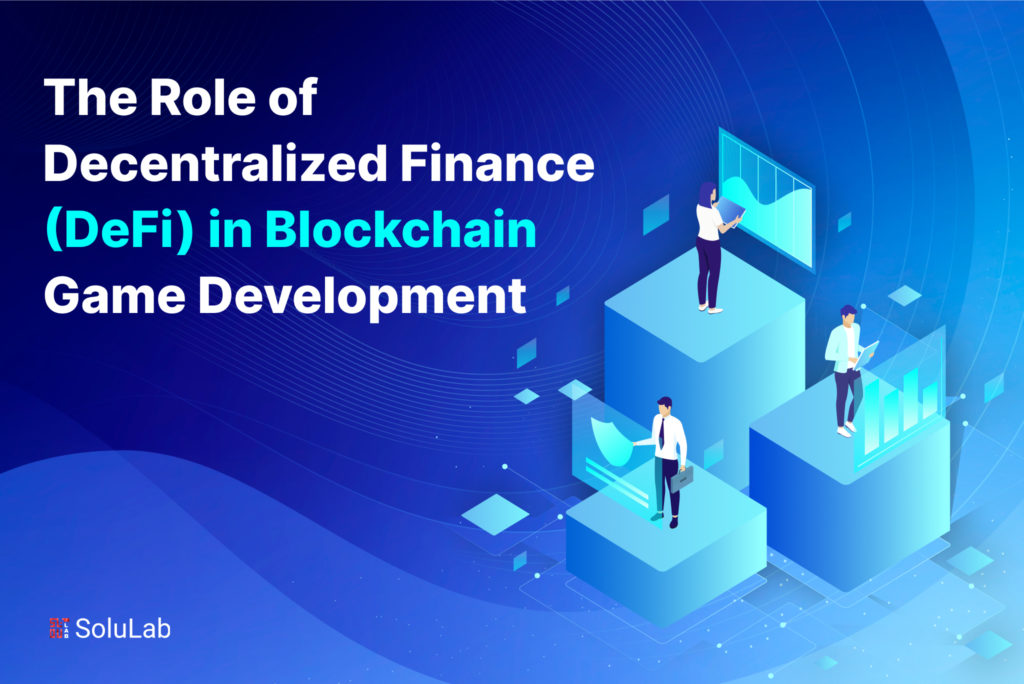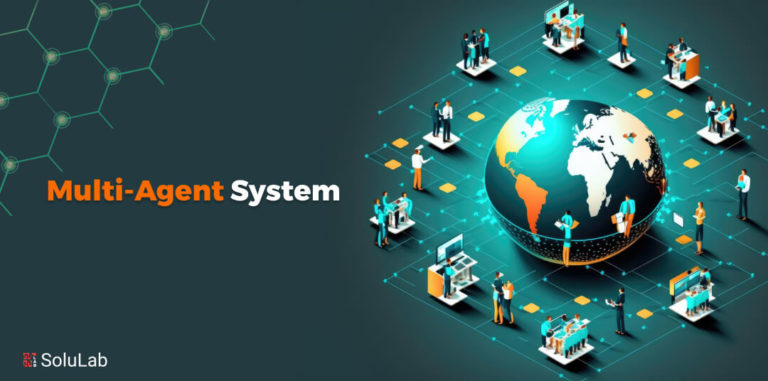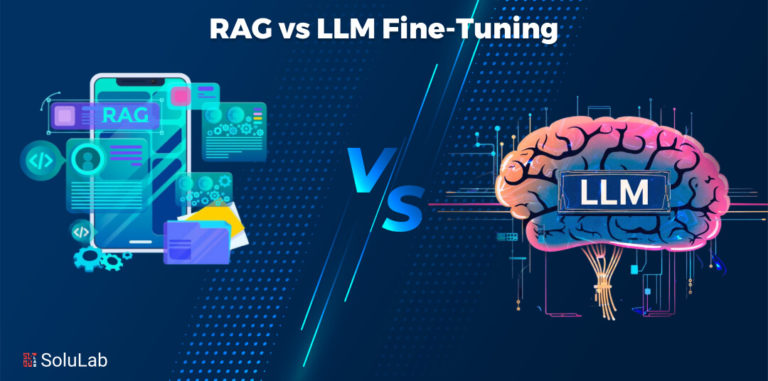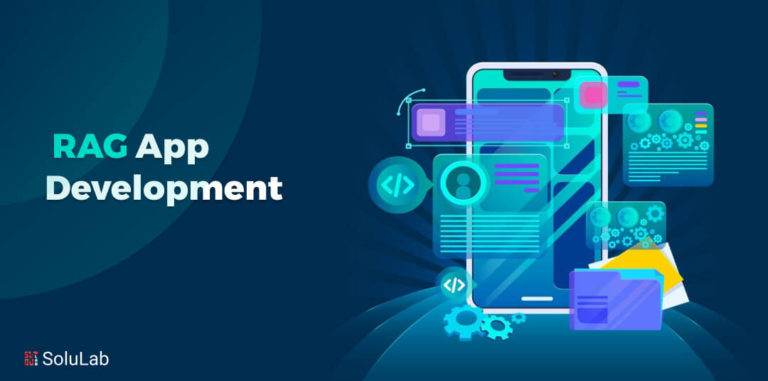
Decentralized Finance, commonly referred to as DeFi, represents a transformative paradigm within the blockchain space. DeFi encompasses a suite of financial services and applications that are built on public blockchain networks, enabling trustless and decentralized transactions without relying on traditional financial intermediaries. In the context of DeFi in the blockchain game industry, it signifies the integration of these financial services into the development and operation of blockchain-based games.
Blockchain game development is a dynamic sector that leverages blockchain technology to create innovative gaming experiences. This approach harnesses the transparency, security, and immutability of blockchain networks to facilitate the creation, trade, and ownership of in-game assets, such as Non-Fungible Tokens (NFTs). Blockchain games often utilize cryptocurrencies and smart contracts to underpin in-game economies, enabling unique ownership and provably scarce digital assets.
The role of DeFi in blockchain game development is of paramount importance, with several compelling facets. DeFi in blockchain games introduces a new dimension of financial services, including lending, borrowing, trading, and yield farming, into virtual gaming environments. This integration significantly enhances the economic ecosystem within these games, allowing players to interact with in-game assets in novel ways.
What is the Role of DeFi in Enhancing the Blockchain Game Ecosystem?

A. Empowering Blockchain Games through DeFi Integration
The role of DeFi in the blockchain game development process cannot be overstated. It comprises the creation of the infrastructure, protocols, and smart contracts that underpin the financial mechanisms within the game. Here’s how DeFi enhances the blockchain game ecosystem:
-
Cryptocurrency-Based In-Game Economies
DeFi allows for the creation of cryptocurrency-based in-game economies, where in-game assets and tokens hold real-world value. This shift from centralized in-game currencies to decentralized cryptocurrencies enables players to trade, invest, and own digital assets with true ownership and scarcity.
-
Smart Contracts for Asset Trading
DeFi development services enable the implementation of smart contracts that govern the trading of in-game assets. This enhances security and trust among players by ensuring that asset transactions occur automatically and transparently, without the need for intermediaries.
Read Blog: Top 25 Blockchain-Based Gaming Companies
-
Governance Tokens
DeFi also brings governance tokens into play, granting players a say in the direction and development of the game. This empowers the gaming community to have a direct influence on the game’s evolution, fostering a sense of ownership and engagement.
B. Enhancing the Blockchain Game Ecosystem
DeFi’s role in blockchain games extends beyond individual game mechanics. It fundamentally enhances the entire ecosystem in several ways:
-
Player Engagement
The integration of DeFi elements increases player engagement by offering unique opportunities for financial growth and decision-making. Gamers are no longer passive consumers but active participants in shaping the game world.
-
Monetization Strategies
DeFi opens up new monetization strategies for both players and developers. Gamers can earn rewards by participating in the game, while developers can create innovative revenue streams through decentralized financial systems.
-
Transparency and Security
DeFi’s decentralized nature ensures transparency and security within the game ecosystem. Players can trust that the rules of the game are enforced by smart contracts, and asset ownership is immutable.
-
Cross-Game Economies
DeFi has the potential to enable cross-game economies, where assets earned in one game can be used in another. This interconnected ecosystem can significantly enrich the overall gaming experience.
What is the Interplay Between Decentralized Finance and Blockchain Games?
The interplay between decentralized finance (DeFi) and blockchain games represents a groundbreaking fusion of two innovative domains, significantly reshaping the landscape of blockchain game development. This interplay is at the forefront of revolutionizing in-game economies, digital asset ownership, and fostering player engagement in the blockchain gaming universe.
A. Utilizing DeFi in In-Game Economies
-
Cryptocurrency Integration
DeFi in blockchain games brings cryptocurrency integration to the forefront. Game developers are increasingly leveraging cryptocurrencies as in-game currencies, thereby providing players with a more versatile and decentralized means of transactions. This integration has significant implications for cross-border transactions, making in-game economies more inclusive and accessible.
-
Smart Contracts and Tokenization
Smart contracts, integral to DeFi, enable the automation of in-game processes, such as reward distribution, asset trading, and governance. Tokenization of in-game assets using these smart contracts ensures that players have full control over their digital possessions. This tokenization of assets through DeFi protocols makes assets more liquid, enabling players to trade, sell, or rent them in a decentralized manner.
B. DeFi for Digital Asset Ownership
-
NFTs (Non-Fungible Tokens) and DeFi
Non-fungible tokens (NFTs) have emerged as a powerful tool in blockchain game development. These unique digital assets are inherently tied to the principles of DeFi, ensuring that players have true ownership of their in-game items. Players can trade NFTs on decentralized marketplaces, establishing a secure and transparent environment for digital asset ownership.
-
Decentralized Exchanges (DEX) for In-Game Assets
Decentralized exchanges (DEXs) play a pivotal role in the DeFi-driven digital asset ownership ecosystem. These platforms facilitate the trading of in-game assets, NFTs, and other digital items without the need for intermediaries. Players can exchange assets directly with one another, thus reducing fees and increasing the accessibility of in-game assets.
C. Community Engagement Through DeFi
-
Governance Tokens for Players
DeFi principles extend to the governance of blockchain games, giving players a say in the game’s development and direction. By holding governance tokens, players can participate in decision-making processes, propose changes, and vote on crucial matters, thus enhancing community engagement and fostering a sense of ownership.
-
DeFi-Driven Player Incentives
DeFi models in blockchain games often introduce play-to-earn mechanisms. Players can earn tokens through in-game activities, which can then be utilized for various purposes within the game or traded on external DeFi platforms. These incentives encourage active gameplay, as players are rewarded for their participation and contributions to the game ecosystem.
What are the Benefits of Incorporating DeFi in Blockchain Game Development?

Incorporating DeFi (Decentralized Finance) into blockchain game development offers a myriad of benefits that revolutionize the gaming experience. This innovative fusion of blockchain technology and financial services not only enhances gameplay but also empowers gamers in new and exciting ways.
A. Enhanced Security and Transparency
-
Trustless Transactions
DeFi, when integrated into blockchain games, brings a high level of trustlessness to transactions. In traditional gaming ecosystems, players often need to trust centralized intermediaries to handle in-game assets, which can be risky.
However, with DeFi, smart contracts govern transactions, eliminating the need to rely on any central authority. This ensures that the exchange of assets is carried out without the risk of fraud or manipulation, providing players with a secure and transparent environment.
Read Blog Post: Play-to-Earn Games: Revolutionizing the Gaming Industry with Blockchain
-
Immutable Ownership Records
DeFi-based blockchain games leverage blockchain’s inherent immutability to create irrefutable ownership records. This means that players have complete control and ownership of their in-game assets, which are recorded on the blockchain.
These records cannot be altered or deleted, enhancing player confidence in the integrity of their digital possessions. This feature also provides a solid foundation for a secondary market for in-game assets, typically in the form of NFTs (Non-Fungible Tokens), where ownership history is crucial.
B. Lower Transaction Costs
-
Eliminating Intermediaries
One of the primary advantages of incorporating DeFi in blockchain games is the reduction of transaction costs. In traditional gaming environments, intermediaries like banks or payment processors often charge fees for transferring funds or assets.
DeFi systems bypass these intermediaries, enabling players to perform peer-to-peer transactions without the need for costly middlemen. This cost reduction makes microtransactions more feasible, even for small in-game purchases, ultimately enhancing the overall gaming experience.
Know More: 10 Best Defi Exchanges 2023
-
Microtransactions and Fractional Ownership
DeFi’s elimination of intermediaries facilitates microtransactions, allowing players to make small, frequent purchases within the game. This is particularly beneficial for in-game items, upgrades, or accessories that may only cost a few cents.
Additionally, DeFi allows for fractional ownership, enabling players to invest in high-value in-game assets collaboratively. This opens up new opportunities for gamers to access rare and valuable items without the need to purchase them outright, further diversifying the in-game economy.
C. Play-to-Earn Mechanisms
-
Rewarding Player Activity
The integration of DeFi introduces innovative play-to-earn mechanisms that reward players for their in-game activity.
These rewards often come in the form of cryptocurrency or tokens that have real-world value. As players achieve milestones or engage in specific in-game activities, they can earn these rewards, creating an enticing incentive to spend more time in the game.
D. Earning Opportunities for Gamers
Beyond mere entertainment, blockchain games that incorporate DeFi derivatives provide real earning opportunities for players. Gamers can sell or trade their in-game assets and cryptocurrencies on decentralized exchanges, converting their virtual achievements into tangible financial gain. This model not only fosters player engagement but also transforms gaming from a pastime into a potential source of income, appealing to a broader audience.
Incorporating DeFi into blockchain game development thus goes beyond improving gameplay; it creates an ecosystem where trust, transparency, cost-efficiency, and financial empowerment combine to redefine the gaming industry. As this fusion continues to evolve, players can look forward to more immersive, rewarding, and economically inclusive gaming experiences.
What are some key challenges and considerations of integrating Decentralized Finance (DeFi) into blockchain games?

Incorporating Decentralized Finance (DeFi) into the realm of blockchain gaming presents a multitude of opportunities and innovative possibilities. However, as with any emerging technology, there are inherent challenges and considerations that developers, players, and industry stakeholders must address in order to fully unlock the potential of DeFi in blockchain games. These considerations are crucial for navigating the path toward a seamless integration of decentralized finance in gaming.
A. Regulatory Compliance
The marriage of DeFi and blockchain games raises complex regulatory questions that necessitate careful consideration:
-
Navigating Legal and Regulatory Frameworks
The global regulatory landscape surrounding both blockchain and DeFi is still evolving. Developers and gaming companies must be diligent in understanding and adhering to the legal requirements in their respective regions and the regions where their players reside.
Check This Blog: The Role of Decentralized Exchanges (DEXs) in DeFi
-
DeFi and AML/KYC Concerns
Ensuring that the in-game transactions comply with Anti-Money Laundering (AML) and Know Your Customer (KYC) regulations can be challenging in decentralized environments. Maintaining a balance between privacy and security is a delicate task.
B. Scalability and Network Congestion
Blockchain networks, particularly Ethereum, which is commonly used for DeFi applications and blockchain games, have faced issues with scalability and network congestion:
-
Ethereum’s Scaling Challenges
Ethereum, a prominent platform for DeFi and blockchain games, has experienced network congestion and high transaction fees during peak usage. Developers need to explore Layer 2 solutions and alternative blockchains to mitigate these issues.
-
Solutions and Alternatives
The industry must continually seek and adopt scalable solutions to ensure seamless gaming experiences for players. This may involve transitioning to Layer 2 scaling solutions or exploring interoperability with other blockchains.
Read Also: Top 10 Defi Lending Platforms in 2023
C. User Education and Adoption
DeFi in blockchain games demands a certain level of understanding from the gaming community:
-
Bridging the Knowledge Gap
For many players, DeFi may be a new and complex concept. Game developers must invest in educating their user base, ensuring that players understand how to utilize DeFi features within the game.
-
Improving User Experience
The user interface and experience must be intuitive and user-friendly. Players should feel comfortable navigating the DeFi features without encountering barriers due to unfamiliarity.
The intersection of decentralized finance and blockchain games represents a promising frontier in the gaming industry, but these challenges and considerations cannot be overlooked. Industry stakeholders, from developers to regulatory authorities, must work together to address these issues effectively, ensuring that the potential of DeFi in the blockchain gaming ecosystem is fully realized.
How are emerging technologies like Layer 2 solutions and cross-chain integration shaping the future of decentralized finance (DeFi)?
The future of decentralized finance (DeFi) in blockchain game development promises to be a dynamic and transformative landscape, with emerging technologies playing a pivotal role. This article explores the upcoming trends and prospects in this exciting fusion of the gaming and financial sectors.
A. Emerging Technologies and Their Role in DeFi for Games
-
Layer 2 Solutions
As DeFi in blockchain games continues to gain momentum, scalability and cost-efficiency have become critical issues. Layer 2 solutions offer a promising way to address these challenges. By utilizing sidechains or off-chain scaling solutions, blockchain game developers can significantly enhance the performance of their platforms. Layer 2 solutions facilitate faster transaction processing and reduce network congestion, making DeFi applications in games more accessible and enjoyable for users.
These solutions not only enable seamless in-game asset transfers but also provide an ideal environment for implementing microtransactions, enabling players to participate in various in-game financial activities. Blockchain game development services can leverage Layer 2 solutions to create fluid and immersive gaming experiences while maintaining the security and decentralization of DeFi.
-
Cross-Chain Integration
The gaming industry is increasingly diverse, with various blockchain networks and ecosystems hosting different games. Cross-chain integration, which allows assets and data to move seamlessly between different blockchains, is a promising trend for DeFi NFT games. This approach promotes interoperability and the exchange of in-game assets between players from different platforms.
DeFi development companies can leverage cross-chain technologies to enhance the liquidity and utility of in-game assets. For example, a player’s NFT earned in one game can be seamlessly used in another, and decentralized exchanges can facilitate cross-chain asset swaps. The integration of multiple blockchains paves the way for a more connected and vibrant gaming ecosystem.
B. DeFi in Metaverse Development
-
Expanding Beyond Individual Games
The metaverse, a collective virtual shared space, is fast becoming the next frontier for DeFi in the gaming industry. Metaverse development aims to unify various blockchain games, social experiences, and virtual worlds into a cohesive digital universe. This expansion beyond individual games provides opportunities for DeFi to flourish on a grand scale.
Players can move their assets and financial activities seamlessly between different virtual realms within the metaverse, creating a unified virtual economy. DeFi development solutions that focus on metaverse integration are expected to enable a new level of player engagement and financial interactivity, as players traverse these interconnected virtual landscapes.
-
Virtual Economies and DeFi Ecosystems
The convergence of virtual economies with DeFi ecosystems is a powerful trend in metaverse development. In-game assets, currencies, and tokens can serve as valuable assets in the broader DeFi landscape, providing liquidity, yield farming opportunities, and decentralized finance services beyond the gaming world.
DeFi development services are likely to play a pivotal role in designing and maintaining these virtual economies. Users can invest, trade, and participate in decentralized financial activities while navigating the metaverse. DeFi protocols and governance structures within virtual worlds will create a new layer of financial interactivity, offering players more opportunities for growth and participation in decentralized finance.
Conclusion
In conclusion, the fusion of Decentralized Finance (DeFi) and blockchain game development is a pioneering synergy that has unlocked boundless possibilities within the gaming industry. As blockchain technology continues to redefine the landscape of interactive entertainment, DeFi has emerged as an indispensable cornerstone, offering unprecedented transparency, security, and accessibility.
Companies like SoluLab, with their expertise in blockchain game development services and DeFi development solutions, stand at the forefront of this revolution, empowering developers and gamers alike. The Role of DeFi in blockchain game development cannot be understated, as it not only enriches the player experience but also brings new financial opportunities to the forefront.
As the blockchain game industry continues to evolve, SoluLab’s commitment to advancing decentralized finance in blockchain game development service underscores its pivotal role in shaping the future of this dynamic and transformative ecosystem. Contact SoluLab to explore the possibilities.
FAQs
1. What is the Role of DeFi in Blockchain Game Development?
Decentralized Finance (DeFi) plays a pivotal role in blockchain game development by offering a new dimension of in-game economics. DeFi solutions enable the creation of decentralized assets, tokens, and marketplaces, providing players with true ownership and control over their in-game assets. This opens up possibilities for dynamic and player-driven economies in blockchain games.
2. How Does DeFi Impact the In-Game Economy of Blockchain Games?
DeFi in blockchain games disrupts the traditional gaming economy by allowing players to trade, lend, and borrow in-game assets in a trustless and transparent manner. It empowers players to make meaningful economic decisions, thereby making the in-game economy more vibrant and player-centric.
3. What Are the Benefits of Incorporating DeFi in Blockchain Game Development?
The integration of DeFi in blockchain game development offers benefits such as increased player engagement, real asset ownership, and the potential for players to earn real-world value from their in-game activities. It also reduces the risk of fraudulent in-game item sales and enhances the overall gaming experience.
4. How Does DeFi Influence the Monetization Strategy of Blockchain Games?
DeFi can revolutionize the monetization strategies of blockchain games by enabling new revenue streams, such as transaction fees from in-game asset trading, token sales, and DeFi-related activities. It offers developers innovative ways to generate income and sustain their game ecosystems.
5. How Can DeFi Development Services Enhance the Blockchain Game?
DeFi development services can enhance your blockchain game by providing solutions for creating decentralized tokens, building in-game marketplaces, and enabling DeFi functionalities like yield farming and staking. These services can make your game more interactive, engaging, and profitable for both developers and players.
6. What Risks Should you be aware of when Integrating DeFi in the Blockchain Game?
While DeFi brings numerous advantages, it also comes with risks, including smart contract vulnerabilities and potential regulatory challenges. It’s crucial to work with experienced DeFi developers and legal experts to ensure compliance and security when implementing DeFi in your blockchain game.






